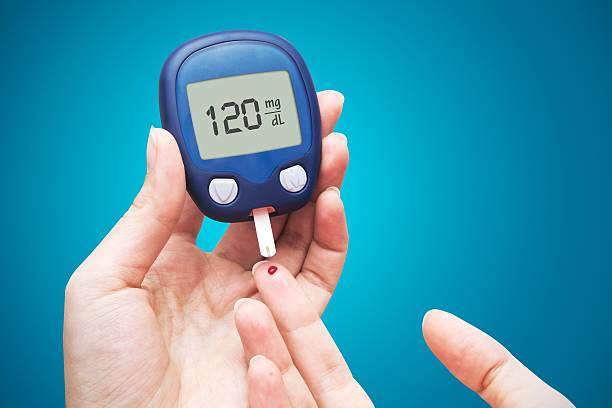Ten-time Olympic medallist Gary Hall Jr. (48) states that he didn’t have the honor of being named the fastest swimmer in the world during the 2000 Summer Olympics, which took place in Sydney. He viewed his triumphant moment on TV as a crowd. Hall Jr. participated in the event following his diagnosis of type-1 diabetes in March 1999. He had a major low-blood sugar episode.
“I was in the pool for the last portion of the freestyle 4×100 relay and didn’t understand why my sugar levels plummeted dramatically. I had finished the race, as I was swimming in the cool-down area (it helps to recover from fatigue caused by neuromuscular activity) as my memory began becoming blurred. In that moment my sugar levels were 23 mg/dL. I’m not sure about the ceremony for the medals where they played the national anthem, then raise the flag, and award you with a the gold medal to thank your incredible achievement,” he tells Happiest Health.
He was amid his swimming ability and was diagnosed with type 1 diabetes 24. He suffered from excessive thirst, hunger, blurry vision, and dizziness and shed 20 pounds. Doctors advised him that this was the conclusion of his athletic career and that it was impossible to compete in the Olympics.
It is possible to swim with diabetes.
Swimming was not only his hobby, but it was also his profession. “Being informed that you suffer from an ongoing condition that could possibly lead to a lengthy list of serious issues, including blindness and lower limb amputations as well as circulatory issues including stroke, kidney disease it was extremely depressing. It took me a few days to comprehend what diabetes was and the ways to manage it,” he says.
Since his father is an eye doctor and was witnessing cases of Retinopathy, which is a complication of diabetes, He was aware of the problem. He contacted an endocrinologist, Dr. Anne Peters and her team took care of Hall Jr. and encouraged him to participate in competitions. After a few years, he stood on the podium, winning the Olympic gold medal. “I could not have made it back to competing and swimming without her,” he says.
Although he wasn’t sure about participating initially, he decided to join in the sport with others who suffered from the same disorder. “Since my diagnosis I’ve been told stories of children being told that they shouldn’t participate on the team for sports or have sleepovers as they suffer from type one diabetes. Even when they did join an athletic team they would be treated by the coach as their condition as one of a burden, and the child would sit in a chair during training or during the game. It’s unfortunate and I was determined to in stopping that,” he says.
Sports challenges
There are many challenges when swimming in the water with type 1 diabetes. The adrenaline, the endorphins, the stress response of competing in front of others, and the reaction of performing before others can cause blood sugar levels to go to the sky. “My goal was to be focused while swimming. I analyzed my blood sugar frantically about 20 times per day and at least once every hour, using finger-prick blood tests five minutes before the race. I could later declare, “I’ve done everything that I can and put the whole thing aside for the next five minutes when I had to go do my race,” he says.
Hall Jr. says he has no family experience with type one or type 2 diabetes, and there have been no misdiagnoses or mysterious deaths of any illness within his family over the years. Being a sportsman, he had to look out for his nutrition and diet constantly. “I was required to perform carb count and then try to calculate the insulin dosage in accordance with the amount of carbs. Also, there were some things that genuinely surprised me during the trial-and-error process of learning, such as the amount of carbohydrates even in tiny amounts of white rice.” the author says.
After being diagnosed, he needed to go to McDonald’s along with fifteen swimmers for a trip. “As I could not come across a healthy alternative and was hungry, I ordered an egg McMuffin to eat breakfast. I also had to pump myself full of insulin, far higher than what I needed for a huge portion of pasta.” the man recalls.
Currently living in Los Angeles, Hall Jr. is managing his diabetes by regularly monitoring his blood sugar levels and seeing his endocrinologist, Dr. Peters, at least every six months. Since being diagnosed, he’s never seen a single indication of diabetes-related complications, Hall Jr. says with a smile of pride.
Supporting the diabetes community
Hall Jr. is now part of several diabetes communities that are helping to improve the lives of people with diabetes and remove the stigma surrounding the disease. Hall Jr. is also a part of the study groups. He believes that someday, there will be a cure for type 1 diabetes. “There are a lot of advances in regenerative medicine that can aid in replenishing beta cells, or generate beta cells, or even rewire the immune system to ensure that it doesn’t see these cells as harmful and then kill them. I’m incredibly optimistic and believe this could result in a cure,” the doctor declares.
So, his advice for people with diabetes is not to get overwhelmed and give up since it can cause irreparable harm that cannot be overcome. Encouraged to be more open about the illness. He also advises not to feel ashamed or blame oneself or family members for it.

